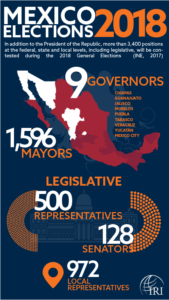The conviction of a prominent Mexican journalist sets a dangerous precedent for freedom of expression, writes Enrique Bravo-Escobar, Ph.D., Senior Program Officer for Latin America & the Caribbean at the National Endowment for Democracy (NED).
Sergio Aguayo Quezada (above) wrote a column in January 2016 about the corruption of Humberto Moreira, a former governor of Coahuila state and former president of the Institutional Revolutionary Party (PRI). In July 2016, Moreira sued him for “moral damage” (civil defamation). Aguayo won the case in the first civil court on April 1, 2019 but Moreira appealed the resolution, and the case went to the next court. on October 10, 2019, that court reversed that ruling, now ruling in favor of Moreira. A few days ago, the court ordered Aguayo to pay 10 million pesos (approximately US$500,000).

International Republican Institute
The judge has been accused of conflict of interest, because of relatives’ dealings with the Moreira brothers. Ruben Moreira, the brother of Humberto and also former governor of Coahuila, awarded an important legal position (notaria) to the brother of the magistrate that is deciding the case.
Aguayo had to deposit a bond for 450,000 pesos (approximately US$24,000) on January 28 to prevent further legal action against him, and requested a suspension of that ruling, based on a violation of his constitutional rights (freedom of expression in this case). Two days ago, on January 29, the Mexican Supreme Court took up the case, and hopefully it will finally put it to rest.
Civil society groups, including Article 19, Fundar, and Amnesty International have mobilized in support of Aguayo, drawing international attention to the case. The local government of Mexico City, ruled by the party of President Andrés Manuel López Obrado, as well as other legislators from different parties, have also criticized the ruling against Sergio.
Freedom of expression advocates are concerned that a draft proposal for a new national penal code includes defamation and “fake news” as crimes.
The Aguayo prosecution is an outrageous case and a perfect example of how Mexico’s old-guard, authoritarian politicians, in this case two PRI former governors, use ties with the judiciary to harass and try to silence journalists and critical voices.







